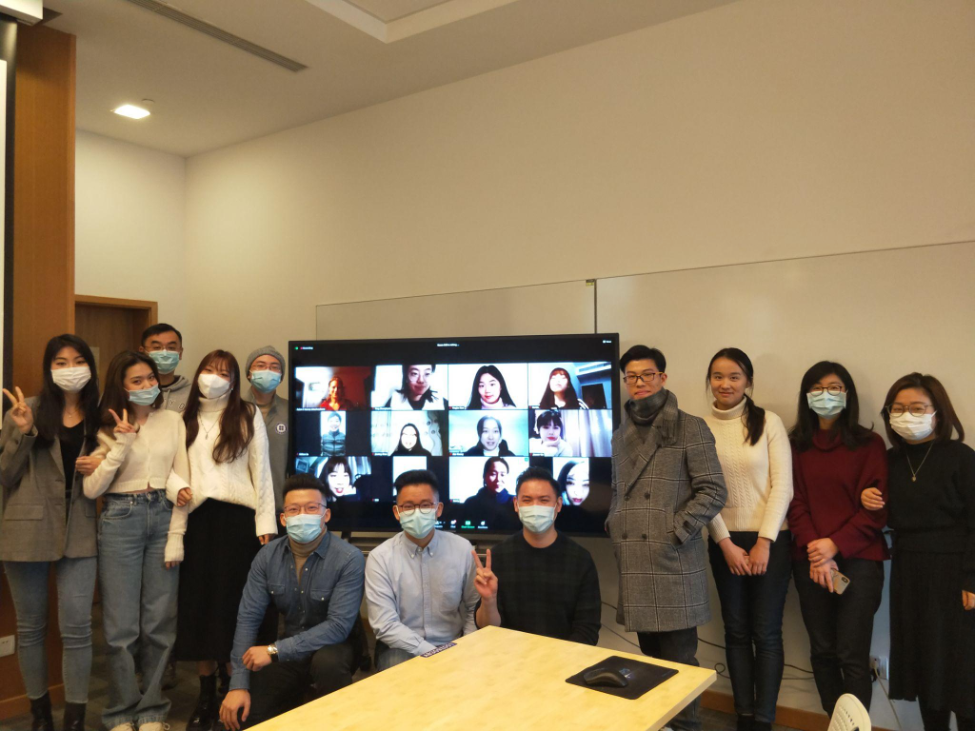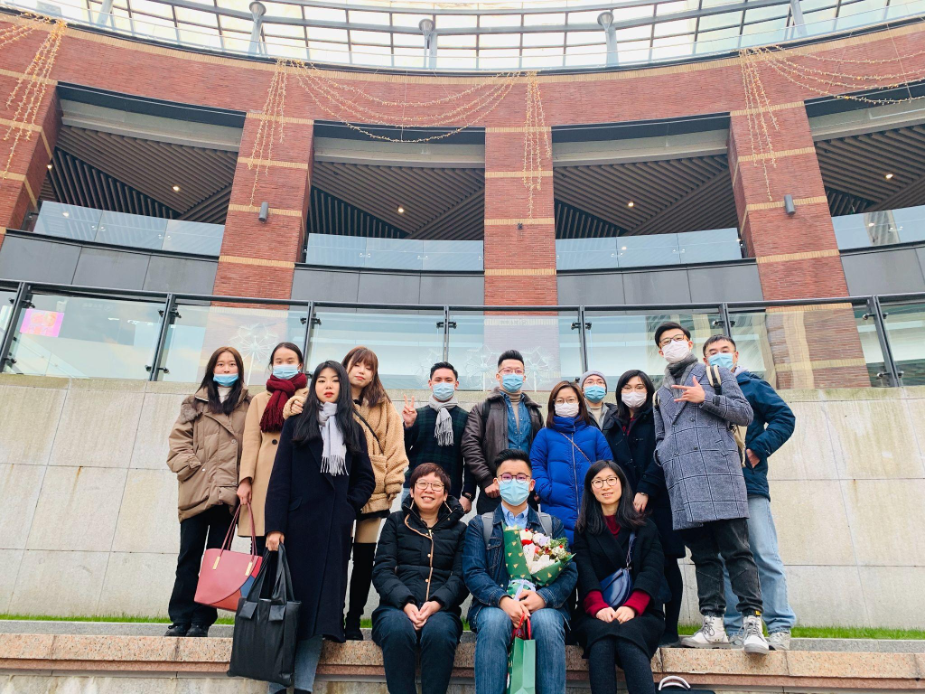Forrest Feng is a graduate of the MA TESOL program, which was jointly established by NYU Shanghai and the NYU Steinhardt School of Culture, Education, and Human Development. Feng graduated from the program in May 2022 and received the Excellence in TESOL Award for his outstanding academic performance.
As an undergraduate, Feng attended the East China University of Science and Technology, earning a bachelor's degree in Chemical Engineering and a second degree in Intellectual Property Law. Since his graduation, he has worked in the intellectual property divisions of Fortune 500 companies, having over 15 years of experience in the field. After completing the TESOL program, Feng relocated to New York City to begin a new chapter in his academic life.
Feng has a multidisciplinary academic background spanning engineering, law, and language teaching. Recently, the Office of Graduate and Advanced Education had an interview with him, where he shared how he joined the TESOL program, his learning experiences, and vision for his career in the future.

Feng with his family
Language learning has been Feng's longtime passion. Since February 2014, Feng has been a loyal listener to English podcasts to get better at the language. Feng is very persistent in his learning, "I have stuck to this routine for over 8 years, having never missed a day.” Language learning opened many new worlds for Feng and continued to stimulate his curiosity. In the summer of 2020, Feng, a legal professional, came to NYU Shanghai and joined the TESOL program.
When asked about why he chose to study in a discipline beyond his profession, Feng explained that he had always been the recipient of knowledge, but the TESOL program would give him the opportunity to be a giver of knowledge. The best way to learn, in Feng's opinion, is to "learn something and then teach it," "In order to teach, I must first put in maximal effort to master the materials to be able to impart it to the students accurately and comprehensively." Feng said. Despite having more than 15 years of work experience in law, he has always had a strong passion for education. Before deciding to enroll in the TESOL program, Feng had a rebellious voice inside his heart, "This time, I am going to study something irrelevant to my job, just for the sake of it."

Feng with his classmates and professor in the TESOL program
During his time in the TESOL program, Feng founded a volunteer project where he used his free time to teach legal English at his old law school. This became an important platform for Feng to practice teaching. He practiced while learning and immediately learned more through practice. Benefiting from this benign cycle, Feng felt strongly that learning and teaching shouldn’t be separated. “In classes such as Second Language Classroom and Intercultural Perspective, I would prepare beforehand my teaching materials for the voluntary project and instantly revise them according to what I learned as the classes went on. I would then take the revised materials and teach at my old school,” Feng recalled. After teaching, Feng would note down his thoughts and confusions, which he would bring for a discussion with his classmates and professors at the TESOL program. “This is truly an unprecedented learning experience for me.” Feng added.
The TESOL program revolutionized Feng's understanding of the learning process. "I used to think that phases of learning should be receiving, internalizing, and then applying." Because of his experiences during the TESOL program, Feng had an epiphany, "It came to me that the order should actually be receiving, applying and finally, internalizing. Only by applying the knowledge can we truly internalize it." By teaching, Feng expanded the horizons for many students while solidifying mastery of his own skills and knowledge. Feng took teaching very seriously . He described his teaching process as “walking on tiptoe on thin ice”. To avoid giving the students any inaccurate information, he held himself to an excruciatingly high standard in preparing the content and designing the structure.
The concepts taught in the TESOL program have also profoundly changed Feng's teaching methods. Feng remembered that he had an awakening when taking the Language Assessment course. “It felt like a ‘hammer hitting my head’”, Feng laughed, "I used to try to point out every single mistake when reviewing students’ assignments until during a Language Assessment class, the professor said, 'The teacher has to take into account the mood of the students while marking assignments and providing feedback. Therefore, it is enough to correct one mistake every time. It is more important to retain the students’ enthusiasm for learning than to correct more mistakes’.” Feng recalled that although this seemed to be a simple argument, he couldn’t have thought of it on his own. Now, he no longer points out the problems all at once . Instead, he focuses on encouraging and guiding students. He laughed heartily, "Don't worry, we have a lot of time. In the future, with the advancement of medicine, the average life expectancy of human beings may be extended to 100 years. If that is the case, my students still have seventy or eighty years of study time, right? Then let’s take our time!"

Feng with his classmates in the TESOL program
As the volunteer project went on, many of Feng’s students were no longer satisfied with merely improving their English, eager to understand more how to practice legal work in English. The project was then renewed for a second season. His teaching practice also inspired his thesis for the TESOL program, themed “curriculum design of English class for professional needs”. Through surveys and questionnaires, he collected the English learning status and language learning goals of students in his old law school. Feng found out that "For law students, many things in legal English can be taught by themselves, such as terms and articles. But there is one thing that must be taught and trained by a teacher, ‘problem statement’. Students need to exercise their ability to accurately identify problems and state them professionally in English". Feng’s curriculum design adhered to the "holistic view" that the TESOL program emphasizes and the classes, covering listening, speaking, reading, and writing, thus comprehensively improving students’ ability to make statements.
Currently, Feng is studying for a new master's degree in Law in the United States. Continuous learning is providing him with diverse perspectives and fresh ideas. Towards the future, Feng is enthusiastic and hopeful. "I hope that in the future, while remaining a professional lawyer, I can continue to teach English part time at school. I enjoy opening up new worlds for my students.”


